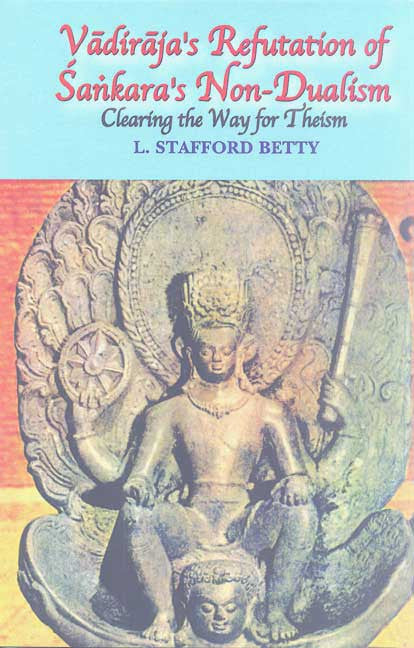Vadiraja's Refutation of Sankara's Non-Dualism: Clearing the Way to Theism
![]() 100% Genuine New Books
100% Genuine New Books
![]() Fast Shipping with Tracking Number
Fast Shipping with Tracking Number
Secure Payments via UPI, Cards & Wallets
![]() Trusted Support & Easy Returns
Trusted Support & Easy Returns
Vadiraja's Refutation of Sankara's Non-Dualism: Clearing the Way to Theism - Hardcover is backordered and will ship as soon as it is back in stock.
ISBN : 9788120831582, 8120831586
Year of Publication : 2014
Edition : Latest Reprint
No. of Pages : 239
Language : English
Condition : New
Publisher: Motilal Banarsidass Publishing House
Free shipping on orders over Rs. 249
Free shipping on orders over Rs. 249
We offer free shipping on orders above Rs. 249 in India. For orders below this threshold, a nominal shipping fee may apply, which will be clearly indicated during the checkout process.
How long will it take to receive my order?
How long will it take to receive my order?
The delivery time varies depending on your location. Generally, orders are processed and shipped within 1-3 business days. Once shipped, you can track and expect your order to arrive within 3-7 business days (the duration may vary depending on your location). For more information, please refer to our shipping policy.
Chat with a Real Person
Chat with a Real Person
WhatsApp chat is dedicated to assisting with after-sales queries regarding delivery, returns, and payments. Click below to initiate chat with us on WhatsApp:
[Bookstaa WhatsApp Chat].
For all other inquiries, please visit our customer support page or email us at support@bookstaa.com.
Couldn't load pickup availability
Description
Description
In this volume L. Stafford Betty translates and provides commentary on a work by the sixteenth-century Hindu philosopher-theologian and poet Vadiraja. Vadiraja was a follower of Madhva, the originator of the system known as Dvaita (Dualist) Vedanta, which teaches that God is the Supreme Person and is different from His creation. Madhva's system clashes head-on with the redoubtable Sankara's Advaita (Non-dualist) Vedanta, which teaches that God is impersonal and is ultimately identical with all that is. As is today the case, in Vadiraja's day also, Sankara's Non-dualism was regarded by the majority of India's intellectual elite as His finest and purest presentation of the Eternal Truth enshrined in the Vedas.
In this work Vadiraja passionately contests Non-dualism's supposed supremacy and fidelity to Scripture. Combining deft analogy, often charming metaphor, and a ruthless method of reduction ad absurdum, he cuts and swipes until the imposing Goliath of Non-dualism has been, to his mind, destroyed.
Professor Betty has provided a concise, fairly literal translation of the text, which is written in the extremely compact style characteristic of Dualist polemics. His extensive commentary, most of it original, is perhaps the clearest guide to the tortuous intricacies of Dualist-Non-dualist dialectic in any Western language.
The Sanskrit text and a Glossary-index are also included.
About the Publisher

Motilal Banarsidass Publishing House (MLBD)
Motilal Banarsidass Publishing House, popularly known as MLBD, is one of the oldest and most prestigious publishing houses in India, established in 1903.
With over a century of legacy, MLBD has been at the forefront of publishing scholarly works in the fields of Indology, Sanskrit, philosophy, religion, spirituality, yoga, Buddhism, and Jainism.
Renowned for its authenticity and academic rigour, MLBD's books are trusted by researchers, scholars, and readers across the globe.
With more than 5,000 titles in circulation, MLBD continues to uphold its commitment to preserving and promoting India’s rich cultural and philosophical heritage.
Bookstaa is an authorized distributor of MLBD books, ensuring 100% genuine and original publications for our readers.

